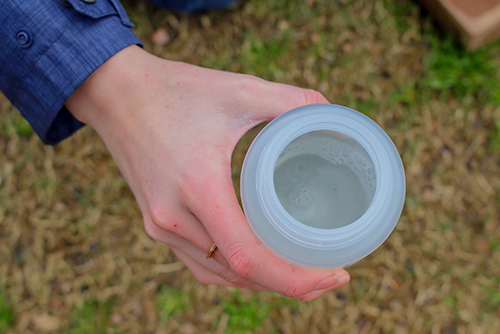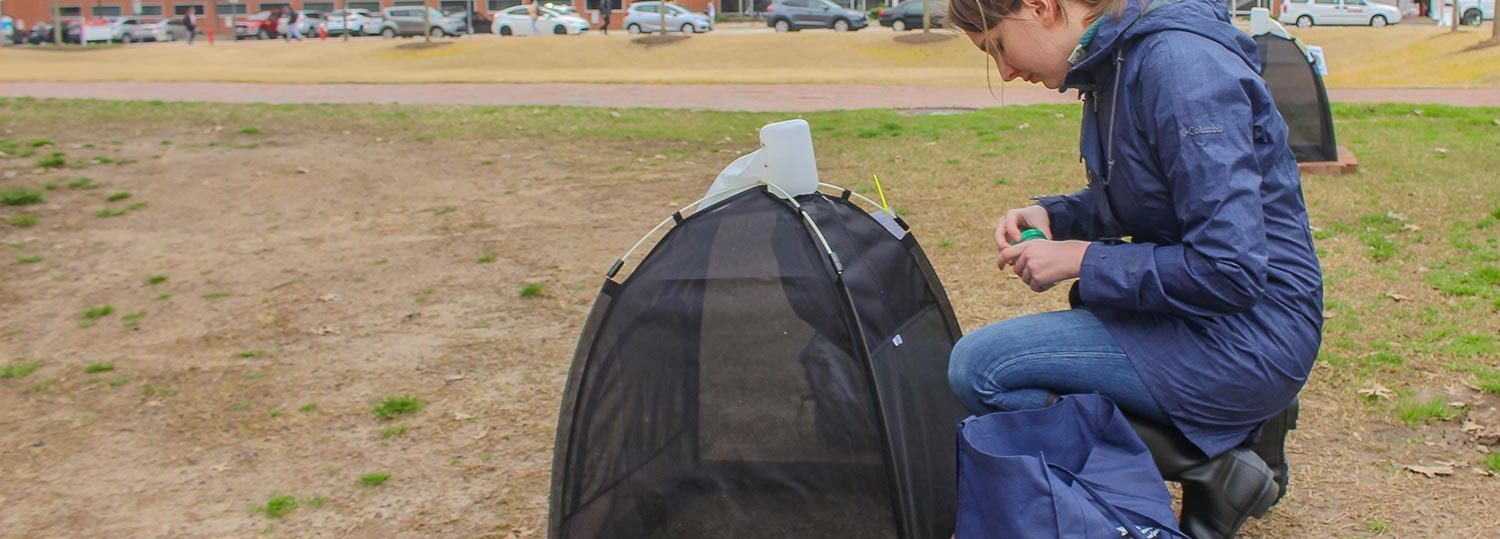The tiny tents you see around NC State’s campus this semester are pollinator research in progress.
“We are researching whether various ground cover types are more or less attractive to ground-nesting bees,” said entomology student Kirsten Keleher, who is working on the research study with Applied Ecology assistant professor Elsa Youngsteadt.
The tents enable researchers to record what types of insects, including bees, emerge from different types of ground cover, such as grass, mulch or bare soil. The 26 tents in 9 different campus locations are visited twice a week to collect data about the types of bee species emerging from various ground covers.
Working with NC State Grounds Services, researchers chose locations with dirt, mulch and grass areas within close proximity. Grounds Services provided bricks and stakes for the tents and helped install all the sites.

“Grounds Services supports the mission of the university by partnering on campus research studies or assisting with education, engagement and stewardship of campus land,” said Horace Blue, who coordinates Grounds Services projects. “We want to be good stewards of the environment by learning more about the life cycle and habits of ground bees.”
Ground-nesting bees have been studied before but research has not been done on their nesting habits in urban environments. About 80% of bee species in the eastern United States nest in the ground, so understanding prefered habitats helps landscapers and homeowners make bee-friendly landscaping selections.
“In studying ground-nesting bees, we can determine how we, as a campus, can create a friendlier environment for bees that provide crucial pollination services and play a part in the beauty of our campus,” Keleher said.
The tents will be in place at least until the end of spring semester when results will be finalized and shared with Grounds Services to inform future campus landscape management.
“Ultimately, we hope to find out if there is a ground cover that ground-nesting bees nest under the most or if different species prefer different covers,” Keleher said.

